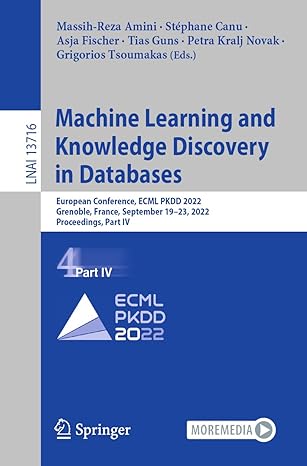Question
Problem Description: write a code in c++ to d evelop a simulation program to evaluate the efficiency of a small fast food restaurant. Currently, it
Problem Description: write a code in c++ to develop a simulation program to evaluate the efficiency of a small fast food restaurant. Currently, it only has one machine for receiving payments. The company has discovered that the customers waiting queue was quite long during peak time. Therefore, the management is considering of increasing the number of machines for receiving payments. Since this company has a very tight budget, thus before investing lots of money in buying new machines and hiring new cashiers. The company wants to carry out a feasibility study to see if the investment is justified.
To make the program easy to use by non-technical people, one of the required features is that this program must be menu driven. All the major options are available at the main-menu screen. From this screen, users can set all the initial simulation parameters and choose to see the simulated results as well. So you have to make a program on the menu and payment system of the restaurent to reduce the delay of customer services. Make sure program will be coded in c++ using following requirements.
Rules For Customer Satisfaction Levels Are:
Satisfied customers ---- waiting time is less than 3 minutes.
Normal customers ----- waiting time is greater than 3 minutes but less than 10 minutes
Unsatisfied customers ----- waiting time is over 10 minutes.
Program Requirements:
You must design your own stack and queue data structure.
You must demonstrate the use of inheritance.
You must use template class linked list.
This program must be menu-driven.
Sample Run:
Screen #1: (main-menu)
|
INPUT:
Amount of time needed for servicing one customer (in minutes).
< > for any new customer arrives during any given minute.
Total length of time needed for the simulation (in minutes).
OUTPUT:
Total number of customers serviced during the simulated time-period.
Average customer waiting time.
Total number of satisfied customers.
Total number of normal customers.
Total number of unsatisfied customers.
Step by Step Solution
There are 3 Steps involved in it
Step: 1

Get Instant Access to Expert-Tailored Solutions
See step-by-step solutions with expert insights and AI powered tools for academic success
Step: 2

Step: 3

Ace Your Homework with AI
Get the answers you need in no time with our AI-driven, step-by-step assistance
Get Started


